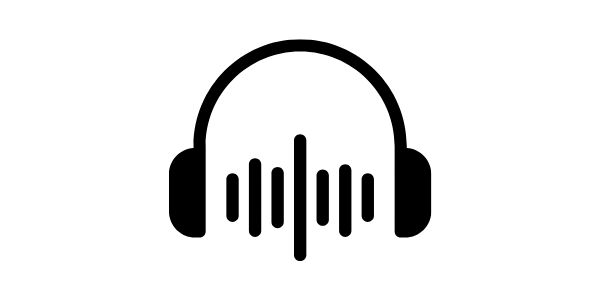New Year, New Music: Streaming Options for Libraries

Public libraries have worked hard to carve out a niche in the digital world, providing free alternatives to paid services to do what libraries have always done: connect people with the resources they need to thrive. From Wi-Fi access to mobile ebook apps, libraries strive every day to disprove the myth of obsolescence in the digital age. While it may take a backseat to reading material, multimedia such as movies and music have long been a service provided by public libraries, and as more music lovers consume their music online, so too have libraries explored innovative ways to bring music to their patrons free of charge.
Meanwhile, Spotify was all over the news in 2022, and not always for the best reasons. The world’s leading music streaming service, with over 456 million monthly active users, has faced controversies around alleged inadequate compensation of artists and facilitating the spread of misinformation about the COVID-19 pandemic. As many consumers seek alternatives to this industry behemoth (which offers both free and paid subscriptions), now is a great time to explore the streaming services available to public libraries.
hoopla
A subsidiary of longtime library favorite Midwest Tape, hoopla launched ten years ago and has ushered in a new era of digital access to library content.
- Library Use: hoopla Digital is in more than 3,300 library systems across the U.S., Canada, Australia, and New Zealand, including Chicago Public Library, San Francisco Public Library, and Los Angeles Public Library.
- Pricing Model: hoopla pioneered the pay-per-use model, hoopla Instant, in 2013, giving patrons simultaneous access to all content, with no holds and no waiting. A recent alternative, hoopla Flex, has recently launched, and consists of a one copy/one user model that lets librarians select new and popular titles in time-metered, usage-metered, and perpetual licenses. hoopla Flex and hoopla Instant work together to give libraries maximum value and the most flexibility in managing their entire digital collection while serving patrons with breadth and depth in the catalog.
- From the Source: According to Kelly Weber, Senior Marketing Manager at Midwest Tape/hoopla, “First and foremost, everything we do is centered around supporting the mission of public libraries. We believe in the important role they play in communities and providing people with access to content. We use this basic mindset to inform decisions about how we’ll do business, because, simply put, we believe we only win when libraries win.”
Rabble
Rabble’s MUSICat platform offers libraries a turnkey web software and process solution for pulling their local music community together, forming a collection of local music, and publishing it for streaming access as well as optional downloads for authenticated library patrons. Rabble has recently made headlines for its innovative and bespoke music curating system.
- Library Use: No two libraries’ MUSICat collections are currently in the same library system, and there are 21 collections running on Rabble MUSICat today, streaming over 2,000 invited artists’ albums.
- Pricing Model: Rabble prices on a single flat annual subscription fee with no usage limits or metering, based solely on the total population of the area served by the collection.
- From the Source: According to Preston Austin, Rabble Founder & MUSICat Technical Architect, “The MUSICat model is unique in that we stand behind the library in their services to patrons and their relationship to artists, not between them and either audience. We don’t license music from artists or publishers to sell or license to libraries for their patrons, the local artists license music directly to their library for its patrons. Also, the collection’s identity is owned by the library – nobody is “using MUSICat,” they are connecting to Chapel Hill’s Tracks Music Library or Eau Claire’s Sawdust City Sounds or Edmonton’s Capital City Records or Austin’s Electric Lady Bird – both artist and patron form and strengthen relationships with the library, in tools operated by the library, that we support. This is possible because MUSICat offers a hosted toolset that makes building a local collection via juried submission rounds run directly by the library practical, and results in direct licenses between the library and its invited artists, on artist-friendly terms set by the library working with local music community stakeholders. This sort of approach also means that the licensing dollars spent by the library – local public money generally – go directly to local artists selected by a local jury.”
Freegal
Since 2010, Freegal® Music has been one of the most popular public library offerings in the world.
- Library Use: Freegal has over 5000 institutional users in 20 countries.
- Pricing Model: Freegal employs a simultaneous use model, on an unlimited streaming usage plan, for a fixed annual fee.
- From the Source: According to their website, Freegal “is a treasure trove of over 16 million songs from over 93,000 music labels from over 100 countries. Users can discover new favorites among the 200,000+ new songs added to our service each month. They can curate playlists for themselves or to share with their friends – or with their library.”
The Bottom Line
Offering streaming music services free of charge is a great way for public libraries to reinforce the notion that library collections grow more diverse every day, and extend far beyond the wide world of print books. If your library’s budget allows, subscribe to one of these platforms and prepare to hear patrons say the seven most magical words a librarian can hear: “I didn’t know the library did THAT!”
Tags: alternativestospotifyforlibraries, musicstreaminginlibraries, streamingplatformspubliclibrary












